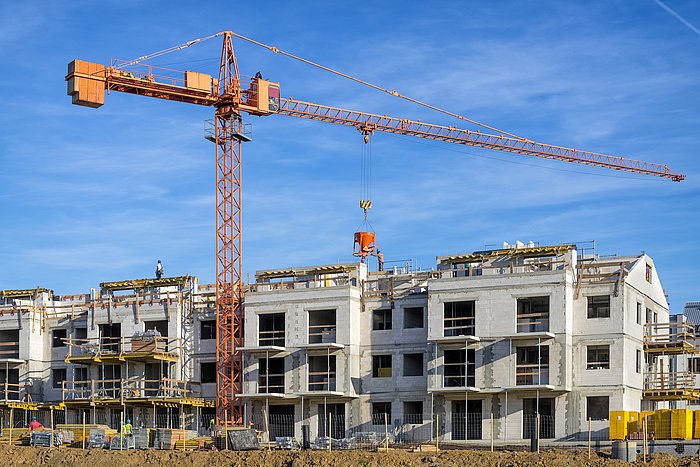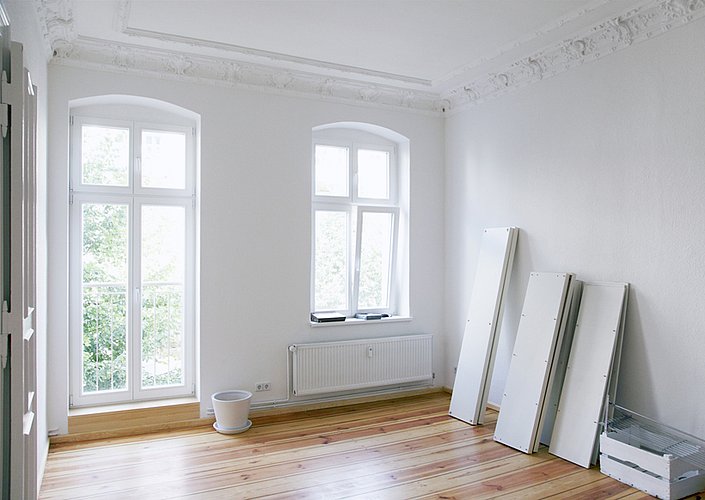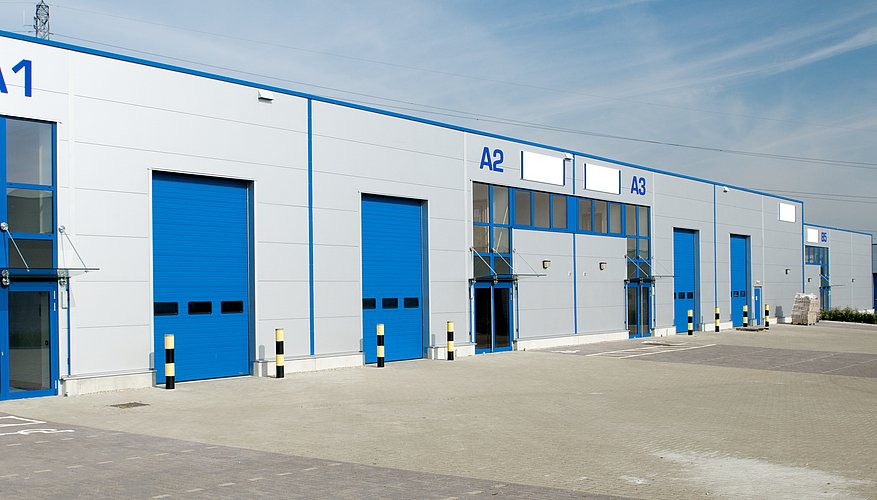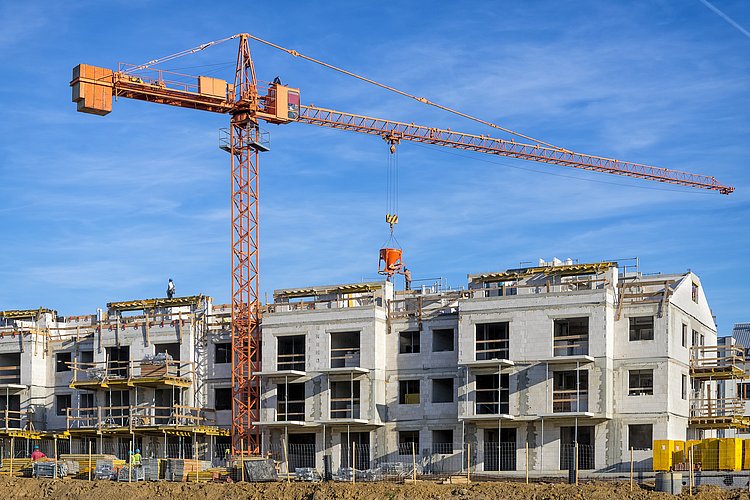Changes from 2024: Amendment to the Building Energy Act and the Funding Guidelines
Update Real Estate & Construction 2/2023
Once passed by the Bundestag and Bundesrat, the amendments to the Building Energy Act (Gebäudeenergiegesetz – "GEG") will come into force on 1 January 2024 with significant changes for owners, landlords and tenants. The changes will be accompanied by a revision of the Federal Funding Guidelines for Efficient Buildings (Richtlinie zur Bundesförderung für effiziente Gebäude – "BEG").
Changes to the Building Energy Act for new and existing buildings
From 1 January 2024, every newly installed heating system in a new development area must be powered by 65 % renewable energy. The date of the building application is decisive. For heating systems in existing buildings and new buildings that are erected outside of new development areas, transitional periods apply until mid-2026 or 2028 in order to better align investment decisions with municipal heating planning. In cities and municipalities with more than 100,000 inhabitants, the installation of heating systems with 65 % renewable energy will be mandatory from 1 July 2026 at the latest. In cities and municipalities with fewer than 100,000 inhabitants, this obligation will apply from 1 July 2028 at the latest. If a decision is made in a municipality before these deadlines to designate an area for the construction or expansion of a heating network or as a hydrogen network expansion area on the basis of a heating plan, the 65 % regulation will apply one month after this decision is announced.
Technical options
The technical requirements for new heating systems can be met, for example, by connecting to a heating network or installing electrically driven heat pumps, direct electric heating systems, solar thermal systems and various hybrid heating systems. To avoid any misunderstandings: The regulations only apply to the installation of new heating systems. Existing heating systems can continue to be operated. Repairable heating systems can and may still be repaired. In the event of irreparable damage to oil or gas heating systems, an oil and gas heating system can initially be installed again. However, after a five-year transition period, this must be replaced by a heating system powered by 65 % renewable energy.
Changes to the Federal Funding Guidelines for Efficient Buildings
To alleviate the financial burden for owners and landlords, the Federal Government will provide various investment grants and low-interest loans from 2024. To this end, key points for the revision of the BEG have been adopted, which will also come into force on 1 January 2024.
Investment grants
For the renewal of a heating system, an investment grant amounting to 30 % of the investment costs is made available as basic funding for all residential and non-residential buildings. Private homeowners, landlords, local authorities, companies and non-profit organizations are eligible to apply. In addition, an income-related (up to EUR 40,000.00 taxable household income p. a.) bonus of 30 % of the investment costs and a further "speed" bonus of initially 20 % of the investment costs for the early replacement of old fossil fuel heating systems will be made available, whereby only self-using owners will be eligible to apply. In total, the subsidy can amount to 70 % of the investment costs, capped at an amount of EUR 30,000.00 per single-family home or first residential unit in a multi-party house. For apartment buildings, the eligible costs are to increase for each additional residential unit; for non-residential buildings, the limit for eligible costs is to be based on the number of square meters. It is interesting to note that the maximum limit for eligible costs is to be raised to a total of EUR 90,000.00 if other energy efficiency measures (e. g. insulation of the building envelope) are carried out in addition to replacing the heating system.
Federal Government's package of measures
With the package of measures for the construction and real estate industry presented by the Federal Government on 25 September 2023, the aforementioned "speed" bonus is to be increased from 20 % to 25 % in 2024 and 2025 and the planned degression is to be brought forward. According to the package of measures, housing companies and landlords will also be able to apply for this bonus in future in order to drive forward the heating transition
Adjustment of modernization regulations and rent increases
Under the new Section 555b No. 1a of the German Civil Code (Bürgergliches Gesetzbuch –"BGB“), which was also introduced with effect from 1 January 2024, the tenant must tolerate measures that meet the new requirements of the GEG by installing a heating system. In this case, the landlord can pass on up to 10 % of these modernization costs to the annual rent, provided that subsidies were used for this. The subsidies and a lump sum of 15 % of the costs of necessary maintenance measures must be deducted from the investment costs (Section 559e para. 2 BGB new version). It is important to note that the monthly rent may not increase by more than EUR 0,50 per m² of living space within six years as a result of these modernization measures.
Outlook
The amendment to the GEG will present owners, landlords and tenants with major challenges. In many cases, the choice of the "right" heating system will depend on the respective municipal heating planning, which must be completed by 2028 at the latest. The basis for this will be the "Heat Planning and Decarbonization of Heating Networks Act" (Wärmeplanungsgesetz), which is also due to come into force on 1 January 2024 and is currently still being debated in the Bundestag.
Conclusion
Owners and landlords should get to grips with the planned subsidy programs at an early stage in order to make the best possible use of them. In the context of current lease agreements, it can be assumed that the new possibilities for rent increases will create potential for conflict between landlords and tenants.

![[Translate to English:]](/fileadmin/_processed_/8/b/csm_Vlasic__Markus_print_7fc0b668e1.jpg)
![[Translate to English:]](/fileadmin/_processed_/3/8/csm_Dick__Mathis_print_22bdfe13fd.jpg)





![[Translate to English:] [Translate to English:]](/fileadmin/_processed_/6/0/csm_Besprechung_Vertrag_Tisch___JM-140819HKLW-000010_1_a14b683d81.jpg)

